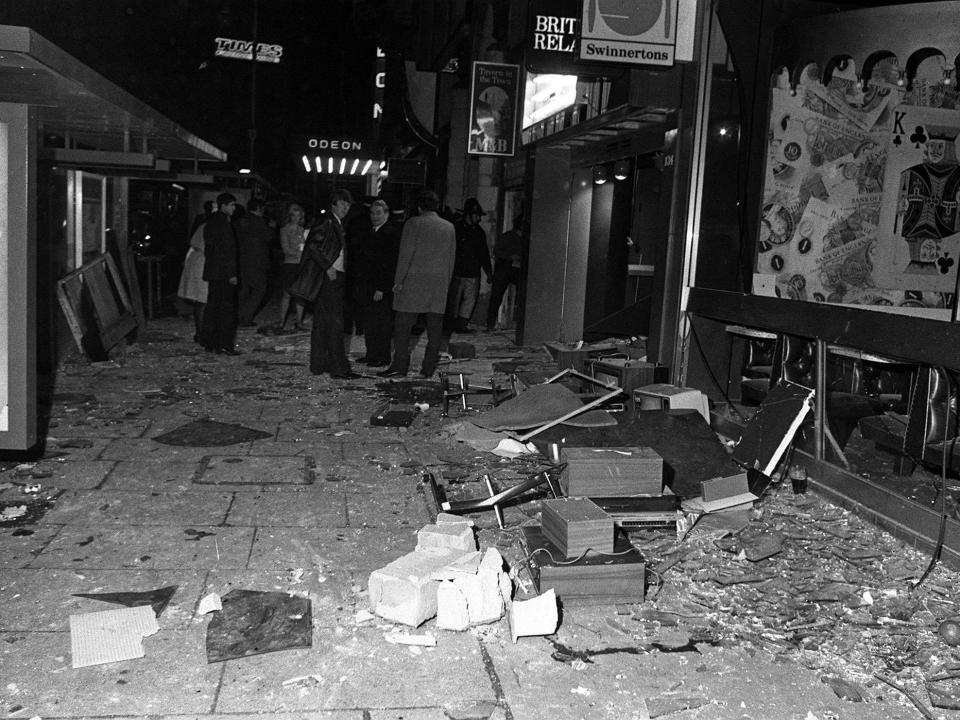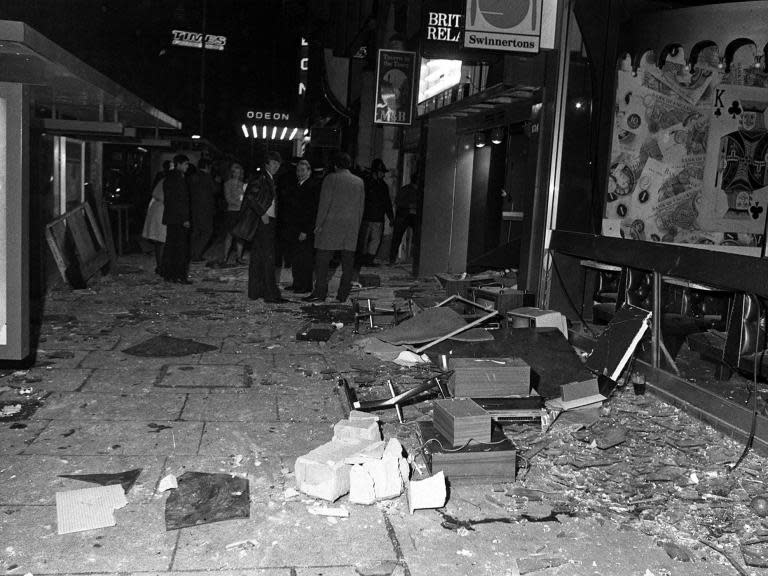Birmingham pub bombings: IRA operative names four men responsible
A convicted IRA bomber has named four men he says were responsible for the Birmingham pub bombings during an inquest into the deaths of the 21 victims.
Known only as Witness O, the man told the court that Seamus McLoughlin, Mick Murray, Michael Hayes and James Gavin were responsible for the 1974 blasts.
He said he had been given permission to make the revelation by the IRA’s present head in Dublin.
No one has ever been brought to justice for the attacks which saw explosives left at the Mulberry Bush and the Tavern in the Town pubs on 21 November 1974. More than 200 people were also injured in the blasts.
All four men named have previously been linked to the atrocity. Hayes admitted his part during a 2017 interview, but this is the first time they have been blamed in a formal setting.
Giving evidence Witness O said he had been a member of an active IRA unit in Birmingham, but was in prison at the time of the attack.
He said that Seamus McLoughlin, the officer then commanding the unit, had selected the targets.
He added that he gave Mr McLoughlin’s name to police in the days after the bombings, while serving time in HMP Winson Green, but heard nothing more.
Speaking via videolink, he said Mick Murray was “one of the bombers”, before naming Michael Hayes and James Gavin under questioning by lawyers for the bereaved families.
Mr Murray and Mr Gavin have both died in the years since the attack.
Witness O added that two other men he knew as Dublin Dave and Socks had also been involved, but that he did not know either man’s real name.
Speaking outside court after the revelation, Julie Hambleton, whose sister Maxine was killed, said: “Witness O has today named the bombers involved in the Birmingham pub bombings. I have a letter from David Thompson, chief constable of West Midlands Police, that says this is an ongoing live investigation. As such we expect action.”
Previously, the inquest heard that the attack was “an IRA operation that went badly wrong”.
Kieran Conway, a criminal solicitor who had once been an intelligence chief with the paramilitary group, said the bombers were supposed to call a coded-warning to police ahead of the explosions but that the chosen phone box had been out of order.
In 1975, six men – who became known as the Birmingham Six – were convicted for the bombings but were acquitted 16 years later in 1991.
The inquest continues.

 Yahoo News
Yahoo News 

